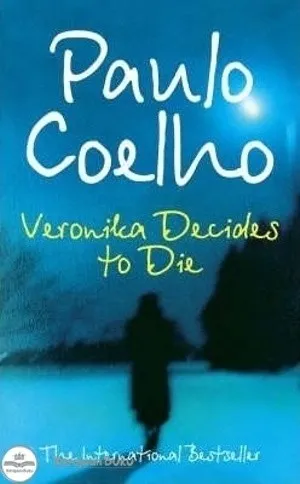Veronika Decides to Die

Author: Paulo Coelho
Category: Fiction, literature
Language: Indonesia
Publication Year: 2018
Pages: 276
Description:
"Veronika Decides to Die" by Paulo Coelho is a novel that starts with a bang—quite literally, as Veronika, a young woman living in Slovenia, decides to end her life. The title gives away the plot's initial twist, so there's no spoiler in telling you that her suicide attempt doesn't go as planned. Instead, Veronika wakes up in a mental hospital with a prognosis that she's only got a few days to live due to irreparable heart damage caused by her overdose. So begins a journey that's as much about death as it is about rediscovering the desire to live.
Coelho doesn't waste time with subtlety. He goes straight for the jugular, challenging our perceptions of sanity and insanity, life and death, freedom and captivity. The mental hospital, Villete, becomes a microcosm of society at large—a place where the so-called "insane" find more freedom to express their true selves than they ever did outside its walls. Coelho uses Villete as a stage to present an array of characters, each with their own philosophical take on life. You meet Zedka, who has struggled with depression, and Mari, a successful lawyer who walked away from her life due to panic attacks. There's also Eduard, a schizophrenic who becomes a central figure in Veronika's awakening.
The plot moves at a brisk pace, but it's not really about the action. It's a novel of ideas, of exploring what it means to be alive. Veronika’s initial decision to end her life comes from a place of profound disillusionment. She feels her life is monotonous, that she's just another cog in the machine, and that there's nothing new left for her to experience. This might sound bleak, but Coelho turns it around. Faced with imminent death, Veronika starts to experience the world differently. She begins to see beauty in the mundane, to feel emotions she had suppressed, and to do things she never dared to before—like playing the piano passionately, not caring who's listening.
The hospital setting allows Coelho to weave in various philosophical and psychological insights, often through the voice of Dr. Igor, the head psychiatrist. He introduces the concept of "Vitriol," a metaphorical poison he believes leads to bitterness and a loss of zest for life. It's a bit on-the-nose and feels like Coelho talking directly to the reader rather than staying within the narrative, but it does provoke thought. Are we all living with our own dose of Vitriol? Are we slowly killing our capacity to feel by sticking to societal norms and expectations?
Coelho’s style is simple and straightforward, which makes the heavy themes more accessible. He doesn't bury you in jargon or overly complex prose. Instead, he lays out his existential questions plainly, almost daring you to answer them for yourself. Some readers might find this approach a bit too didactic, like you're being led through a philosophical seminar disguised as a novel. Others might appreciate the directness, the way Coelho doesn’t dance around the big questions but tackles them head-on.
One of the most intriguing aspects of the novel is how it plays with the idea of sanity. In Villete, the line between the sane and insane is blurred. The patients, who are considered "mad" by society, often come across as more self-aware and authentic than those on the outside. It's a classic Coelho move—taking societal norms and turning them upside down, showing us that sometimes what we think is madness is actually a deeper understanding of life.
"Veronika Decides to Die" is not a light read in terms of its themes, but it’s relatively easy to digest. It's a quick book but one that lingers in your mind long after you’ve put it down. It's both a celebration of life's unpredictability and a critique of how we often squander our freedom by conforming. The ending, which I won't spoil here, ties up Veronika's journey in a way that feels both surprising and inevitable, leaving you with that classic Coelho mix of mysticism and pragmatism.
If you're looking for a novel that challenges you to reflect on your own life choices and what it means to truly live, "Veronika Decides to Die" might just be worth your time. Just be prepared for some heavy introspection along the way—and maybe keep a box of tissues nearby, just in case.
Personal Notes:
This is one of my favorite works by Paulo Coelho, perhaps because the theme resonates so personally with me.
Back to Home